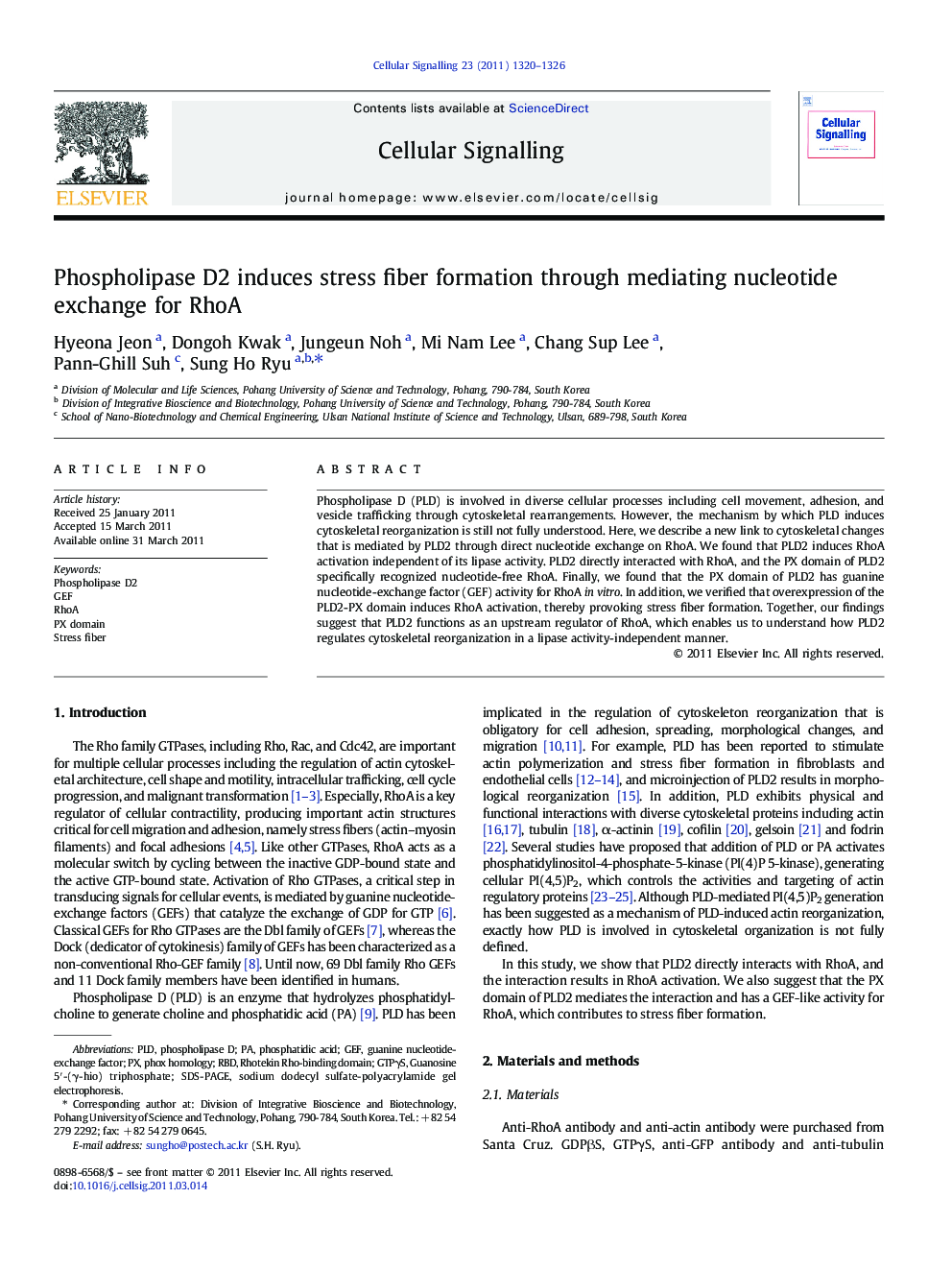| Article ID | Journal | Published Year | Pages | File Type |
|---|---|---|---|---|
| 1963707 | Cellular Signalling | 2011 | 7 Pages |
Phospholipase D (PLD) is involved in diverse cellular processes including cell movement, adhesion, and vesicle trafficking through cytoskeletal rearrangements. However, the mechanism by which PLD induces cytoskeletal reorganization is still not fully understood. Here, we describe a new link to cytoskeletal changes that is mediated by PLD2 through direct nucleotide exchange on RhoA. We found that PLD2 induces RhoA activation independent of its lipase activity. PLD2 directly interacted with RhoA, and the PX domain of PLD2 specifically recognized nucleotide-free RhoA. Finally, we found that the PX domain of PLD2 has guanine nucleotide-exchange factor (GEF) activity for RhoA in vitro. In addition, we verified that overexpression of the PLD2-PX domain induces RhoA activation, thereby provoking stress fiber formation. Together, our findings suggest that PLD2 functions as an upstream regulator of RhoA, which enables us to understand how PLD2 regulates cytoskeletal reorganization in a lipase activity-independent manner.
